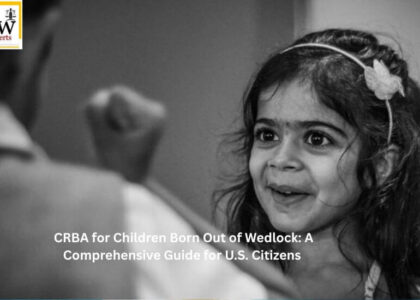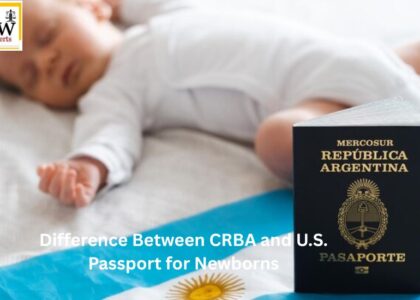Navigating the complexities of U.S. immigration law can be a challenging and overwhelming process, particularly for families seeking to reunite with loved ones abroad. One of the essential steps for individuals who wish to bring their relatives to the United States is the filing of Form I-130, Petition for Alien Relative. This petition is designed to establish a qualifying family relationship with a U.S. citizen or lawful permanent resident (green card holder). The approval of Form I-130 is a critical first step in the family-sponsored immigration process, which can ultimately lead to permanent residency (green card) for the foreign relative. In this article, I being an experienced Immigration Lawyer, will discuss the procedure for filing Form I-130, the eligibility requirements, and how SJ Law Experts, an immigration law firm based in Islamabad, can assist clients with this process.
What is Form I-130, Petition for Alien Relative?
Form I-130 is a petition filed by a U.S. citizen or lawful permanent resident to establish the legitimacy of a family relationship with a foreign national relative. The purpose of the I-130 petition is to demonstrate to the U.S. Citizenship and Immigration Services (USCIS) that a qualifying familial bond exists, which is necessary for the relative to apply for an immigrant visa or adjustment of status. Once the I-130 petition is approved, the relative can proceed to apply for permanent residency in the United States.
Eligibility Requirements for Form I-130
The petitioner (U.S. citizen or lawful permanent resident) must meet specific requirements to file Form I-130 for their relative. The most common relationships that qualify for Form I-130 petitions include:
- Spouse: U.S. citizens can file an I-130 petition for their foreign national spouse. Similarly, lawful permanent residents (green card holders) can petition for their spouse, though the process may take longer for green card holders.
- Children: U.S. citizens can file for their unmarried children under the age of 21. Permanent residents can file for their unmarried children under 21 as well, but there may be longer wait times due to visa preference categories, and for married children or children over 21, U.S. citizens can file, but the process falls under a family preference category, and the wait times can be longer.
- Parents: U.S. citizens can petition for their parents if they are at least 21 years of age.
- Siblings: U.S. citizens can file a petition for their siblings; however, siblings fall into the family preference category, meaning longer processing times due to annual numerical limits on visas.
The Procedure for Filing Form I-130
- Determine Eligibility: The first step is to confirm that the petitioner meets the eligibility criteria to file for a relative. This includes verifying the relationship (spouse, child, parent, sibling) and ensuring that the petitioner is a U.S. citizen or lawful permanent resident.
- Complete Form I-130: The petitioner must complete Form I-130, providing accurate and complete information about both themselves and the relative they are sponsoring. This includes biographical information, details about the relationship, and any supporting documents that prove the legitimacy of the familial relationship.
- Prepare Supporting Documentation: Along with Form I-130, the petitioner must submit supporting documents, which may include, proof of the petitioner’s U.S. citizenship or lawful permanent resident status (e.g., birth certificate, naturalization certificate, green card), evidence of the family relationship, such as marriage certificates (for spouses), birth certificates (for children), or proof of sibling relationship, evidence of the petitioner’s legal status in the U.S. (if applicable), and proof of the beneficiary’s identity, such as a passport, national identity card, or birth certificate.
- Submit the Petition: The completed Form I-130, along with the required supporting documents and filing fee, should be submitted to the appropriate USCIS service center. The petitioner must ensure that all documents are correctly organized and that the correct filing fee is included to avoid delays in processing.
- USCIS Review and Decision: After submission, USCIS will review the petition to verify the relationship and supporting documentation. If additional information or evidence is required, USCIS may issue a Request for Evidence (RFE). If the petition is approved, USCIS will send the petitioner a Notice of Approval.
Filing Form I-130, Petition for Alien Relative, is the first and crucial step in bringing a family member to the United States. The process can be complex, and the importance of having skilled legal representation cannot be overstated. At SJ Law Experts, we specialize in family-based immigration and are dedicated to providing expert legal services to help you navigate the I-130 petition process efficiently and effectively. Contact us today to learn how we can assist you in reuniting with your loved ones in the United States.
SJ Law Experts | Website: www.SJLawExperts.com | Email: SJLawExperts@gmail.com | Contact: +92 335 411 2288





